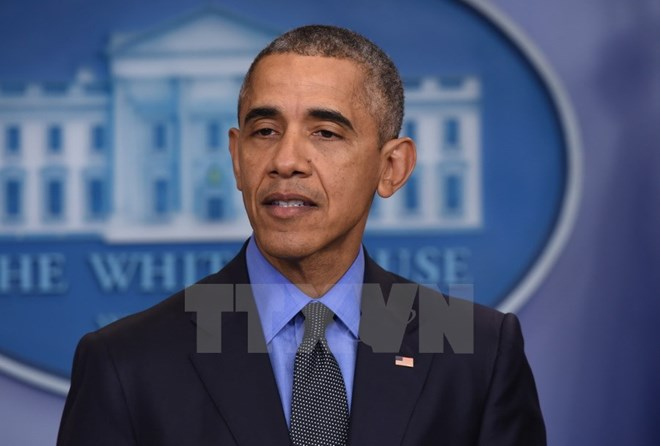In the sweltering heat of Texas politics, a familiar drama unfolded in August 2025 as Democratic lawmakers from the state House fled to Illinois, breaking quorum to halt a Republican-led redistricting bill. This maneuver, reminiscent of their 2021 walkout over voting rights legislation, drew sharp praise from former President Barack Obama, who joined a virtual meeting with the absent legislators. Obama lauded their actions as “inspiring,” emphasizing that their stand against what he called a “power grab” was galvanizing responses nationwide, including California’s plans to counter with its own map redraws. He encouraged the group, saying their efforts were part of a broader fight to safeguard democracy and freedoms, urging them to return invigorated for the long haul.

The context of this standoff traces back to Texas Republicans’ push for mid-decade redistricting, a move aimed at securing up to five additional congressional seats ahead of the midterms. Proponents argue it’s a legitimate adjustment based on population shifts, but Democrats decry it as extreme gerrymandering that dilutes minority votes and entrenches GOP power. Texas Rep. Gene Wu, chair of the House Democratic Caucus, highlighted the necessity of the out-of-state meeting due to alleged Republican threats and surveillance, framing it as evidence of desperation from Gov. Greg Abbott and his allies. Wu noted that Obama’s involvement signaled unwavering support from national Democratic figures, including former Attorney General Eric Holder, who heads the National Democratic Redistricting Committee and briefed the caucus on counterstrategies.
Obama’s endorsement wasn’t isolated; he had previously criticized the Texas bill on social media as an undermining of democracy. Joined by Holder, the call also previewed an upcoming fundraiser in Martha’s Vineyard featuring Obama, Holder, and former Speaker Nancy Pelosi, underscoring the party’s commitment to battling gerrymandering. On the same day, California Gov. Gavin Newsom announced intentions to propose new congressional maps for a special election ballot, potentially neutralizing Texas gains by targeting Republican seats in his state. This tit-for-tat approach has escalated tensions, with Sen. Ted Cruz suggesting Texas could respond in kind, leaving the net effect uncertain but the partisan divide stark.
Yet, this praise from Obama has ignited fierce backlash from critics who view the Democrats’ flight as an abandonment of legislative duty rather than a heroic stand. Detractors argue that by praising lawmakers for “not following orders” and evading votes, Obama is endorsing tactics that subvert the democratic process they claim to protect. One vocal perspective labels Obama a “low life POS” for celebrating what they see as obstructionism, accusing him of hypocrisy in decrying threats to democracy while supporting actions that halt the will of the elected body. These critics contend that Obama’s rhetoric—portraying the walkout as a defense against threatened democracy—ignores the irony that fleeing the state prevents the very votes that embody representative governance.

This criticism extends to broader accusations that Obama bears responsibility for America’s polarized state. During his presidency, policies on immigration, healthcare, and race relations deepened divides, opponents say, fostering the “woke” culture and identity politics that fuel today’s gridlock. His post-presidency activism, including vocal opposition to Republican initiatives, is seen by some as meddling that exacerbates partisanship rather than healing it. For instance, in 2021, Obama similarly backed Texas Democrats’ exodus over election integrity bills, which Republicans framed as necessary safeguards against fraud, while Democrats called them voter suppression. That episode ended with the bills passing after Democrats returned, but it set a precedent for using walkouts as a tool, now repeated in 2025 amid evolving census data and court rulings on maps.

Republicans have responded aggressively, filing legal actions to compel the Democrats’ return and threatening office removal. Gov. Abbott has called multiple special sessions, vowing to persist until the maps are redrawn. This saga highlights the precarious state of U.S. redistricting, where both parties accuse each other of manipulation—Democrats point to GOP efforts in states like Florida and Georgia, while Republicans cite Democratic gerrymanders in New York and Illinois. The Supreme Court’s 2019 ruling that federal courts can’t intervene in partisan gerrymandering has left such battles to state legislatures and voters, amplifying these high-stakes walkouts.
As the midterms loom, this Texas turmoil could reshape congressional control, with implications for national policy on everything from immigration to climate change. Obama’s intervention, while boosting Democratic morale, risks alienating moderates who see quorum-breaking as undemocratic theater. Critics question if such tactics truly advance fairness or merely perpetuate cycles of revenge. In a nation already fractured, the debate rages: Is this standing up for democracy, or fleeing from it? The answer may lie in November’s ballots, where voters will ultimately judge these maps—and the methods used to draw them.





